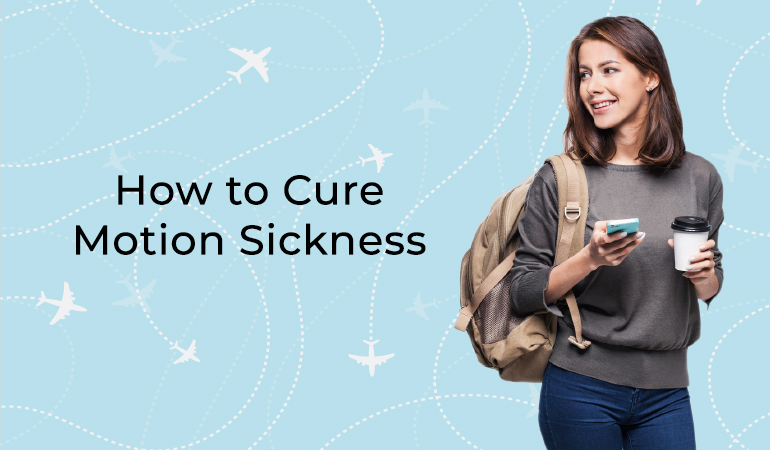Motion sickness can cause symptoms ranging from mild to severe nausea and dizziness, vomiting, and sweating. Be it any type of travel – aeroplane, automobile, ship, or train – motion sickness can happen suddenly.
There are many things that you can do to help manage your motion sickness immediately. Likewise, there are long-term solutions, which you can try. So make sure that you check with your doctor before taking up any supplements or medications to curb your motion sickness.
Tips for Immediate Relief
- Take control – Motion sickness is usually caused when the movement of what your eyes see is different from the movement of your inner ear senses. If you are driving a car, then these senses may connect better.
- Maintain your eyes on the horizon – To help with your visual stimulus, focus on a stationary object in the distance.
- Change positions – Some people find that lying down can make them feel immediately relieved from motion sickness. For others, standing up can help them feel better. Your positions depend on the vehicle you are travelling, so experiment to see which position works better for you. If you are travelling in a car, then leaning your head against your headrest may help lessen the motion sickness feeling.
- Get some fresh air – Just go outdoors if your travel sickness is overcoming you. If the weather does not permit, then turn the air vents towards you or consider using a small fan to blow air on your face.
- Nibble on crackers – Eating a light snack like crackers can ease your nausea. Foods that are greasy, heavy, or acidic may make your sickness worse because they are slow to digest. Other snack options that can be included are cereal, apples, bananas, bread, and other grains.
- Drink carbonated beverage or water – Sip cold water or carbonated drink, like ginger ale, that can help curb nausea. Skip caffeinated beverages, like sodas, contributes to dehydration and can make your nausea worse. Other choices include apple juice or milk.
- Distract yourself with music or conversation – You can either switch on the radio or strike up a conversation to keep your mind off how you are feeling. Listening to music may help ease your nausea and other physiological symptoms which are associated with motion sickness.
- Put down the screen – People who have developed motion sickness may have trouble reading text on devices or books. This is because of the sensory disconnect between the inner ears and eyes. Switch to audiobooks, music, or sometimes even taking a short nap.
- Aromatherapy – Essential oils like ginger and lavender, may prove beneficial in treating your morning sickness. There are many ways to use essential oils but diffusing them and using them has the lowest risk of interactions. Sometimes, even taking sniffs from an essential bottle can be helpful when in a moving vehicle.
Long-Term Solutions to Prevent Future Symptoms
People who often travel for work, experience more travel sickness. Some long-term solutions are:
- Take Vitamin B6 – Vitamin B6 (pyridoxine) is often used to treat nausea and vomiting in pregnancy (NVP). Boosting your energy levels may help treat motion sickness and the daily dosage suggestion is 100 mg per day.
- Take supplements – Herbs like ginger and peppermint support healing motion sickness and nausea. The average dosage for peppermint is 350 mg, taken twice daily and for ginger, it is 550 mg, once in a day.
- Take 5-HTP + Magnesium – Low serotonin levels in the brain may be linked to migraines and motion sickness. Supplements such as 5-Hydroxytryptophan (5-HTP) and magnesium can help raise serotonin.
When to Consult a Doctor?
Your symptoms should get controlled when your motion sickness stops. Motion sickness is not a long-term complication but you may slowly get used to it after a certain period of motion sickness when you are travelling for a long journey.
The Bottom Line
Home remedies, OTC medications and long term solutions can help treat your motion sickness. If you are unable to control motion sickness with the above-discussed medications, then the next advisable step is to consult your doctor who can provide you with an alternative solution.

